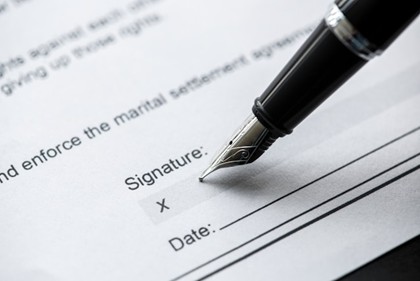
When disputes arise over a loved one’s will, emotions often run high, and the legal process can quickly become complicated. In the realm of trust and estate litigation, both challengers and defenders must navigate complex procedural rules and nuanced legal standards. Whether someone is seeking to contest a will’s validity or protect it from attack, the strategies employed can mean the difference between preserving a person’s final wishes and having them overturned.
The starting point for any legal challenge is establishing a valid ground for contest. Courts are not inclined to set aside a will without compelling evidence that something went legally wrong in its creation or execution. Common grounds include lack of testamentary capacity, undue influence, fraud, forgery, or improper execution.
Lack of testamentary capacity means the person making the will (the testator) did not fully understand the nature and extent of their property, the people who would logically be considered heirs, or the legal effect of signing the document. This often arises in cases where the testator suffered from dementia, severe illness, or mental impairment at the time of execution.
Undue influence occurs when a person exerts excessive pressure on the testator to make decisions that benefit them, often through manipulation or coercion. These cases can be challenging because influence itself is not illegal, only influence that overcomes the testator’s free will.
Fraud and forgery are more blatant but equally serious. Fraud might involve tricking the testator into signing a document under false pretenses, while forgery involves falsifying a will entirely. Improper execution typically concerns failing to meet legal requirements, such as the number of witnesses or specific signing protocols.
For those seeking to challenge a will, the process begins with gathering solid, admissible evidence. This is not a matter of simply raising suspicion; it requires documented facts, credible witness testimony, and often expert analysis.
One effective strategy is collecting medical records and testimony from healthcare providers to demonstrate the testator’s mental state at the time of signing. This evidence can reveal patterns of confusion, memory loss, or diminished judgment that support a lack of capacity claim.
Another approach involves examining the circumstances surrounding the will’s creation. If the primary beneficiary was heavily involved in arranging the attorney, drafting the will, or isolating the testator from other family members, this can strengthen claims of undue influence. Investigators often look for unusual changes from prior wills, especially when they deviate sharply from the testator’s known intentions.
A challenge may also hinge on scrutinizing the witnesses and notary. Discrepancies in their accounts or a lack of proper acknowledgment may point to procedural flaws that render the will invalid. Additionally, handwriting experts and forensic document examiners can assess the authenticity of signatures and prevent fraudulent documents from standing unchallenged.
Defending a will requires both proactive preparation and careful rebuttal of the challenger’s evidence. The burden of proof in many cases lies with the challenger, so the defense often focuses on showing that the will was properly executed and reflects the testator’s genuine intentions.
One effective defense strategy is producing strong witness testimony from those present at the signing. These witnesses can confirm that the testator appeared competent, understood their actions, and was not pressured or coerced.
Documentary evidence is equally important. A well-prepared will package may include attorney notes, correspondence, and prior drafts that clearly outline the testator’s reasoning and intentions. Such records can help refute claims of undue influence or confusion.
Medical evidence can also play a role in the defense, but in the opposite way it is used by challengers. Records showing the testator was alert, oriented, and medically stable at the time of execution can be persuasive in court.
When allegations of undue influence arise, the defense may focus on establishing the naturalness of the bequest. For example, if a child who acted as a caregiver for years received a larger share of the estate, this could be viewed as a reasonable and expected outcome rather than a sign of coercion.
Beyond the factual evidence, will contests are governed by strict procedural rules, including deadlines for filing a claim. Missing these deadlines can result in dismissal regardless of the strength of the underlying argument. Challengers and defenders alike must understand statutes of limitations, notice requirements, and court filing procedures to avoid costly mistakes.
Discovery is another critical phase, where each side can request documents, depose witnesses, and gather evidence under oath. Strategic use of discovery can uncover inconsistencies in the opposing party’s story or identify additional witnesses who can support one’s position.
While some will disputes proceed all the way to trial, many are resolved through settlement negotiations or mediation. Litigation can be expensive, time-consuming, and emotionally draining, especially for families already dealing with grief. Settlement allows parties to reach a mutually agreeable outcome without the uncertainty of a court ruling.
Mediation is particularly effective in probate disputes because it gives families a confidential, structured environment to discuss their concerns and explore compromises. Mediators with probate experience can guide discussions toward practical solutions that preserve relationships while still honoring the testator’s intentions.
For defenders, settlement can help preserve the estate’s assets by avoiding prolonged legal fees. For challengers, it may secure a share of the estate or other concessions without the risk of losing entirely in court.

Whether challenging or defending a will, acting quickly is critical. Evidence can disappear, memories can fade, and statutory deadlines can pass. Early engagement with legal counsel ensures that the appropriate filings are made, evidence is preserved, and strategies are developed while the facts are still fresh.
Moreover, early action allows for better negotiation leverage. A party that is well-prepared with a strong evidentiary record is in a better position to secure favorable settlements or prevail at trial.
Will contests are rarely just about money. They often reflect deeper family tensions, long-standing grievances, or disputes over the care of the deceased. Attorneys and parties must navigate these emotional undercurrents carefully, balancing the pursuit of a legal victory with the potential for permanent relationship damage.
Understanding family dynamics can shape strategy. For example, if the dispute involves siblings, a challenger may use evidence of preferential treatment or exclusion to bolster their case. A defender, in turn, may emphasize the deceased’s reasoning for their choices to portray the will as a fair and thoughtful document.
Challenging or defending a will requires a strategic blend of legal knowledge, factual investigation, and emotional awareness. The most effective cases are built on clear evidence, thorough preparation, and an understanding of both the law and the people involved.
Whether the goal is to uphold a loved one’s final wishes or ensure those wishes were not the result of undue influence or incapacity, the legal strategies chosen will determine the outcome. In the emotionally charged world of probate disputes, success depends not only on proving a point in court but also on navigating the complex interplay of law, evidence, and family relationships with skill and sensitivity.